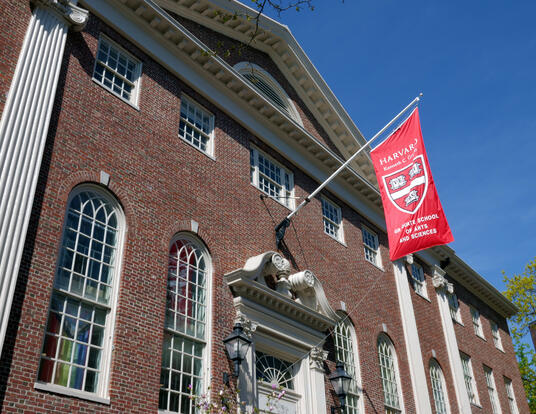B-2 B-Well: Welcome to a New Year
A column from the Office of Student Services

It’s 2020 folks! With the transition from Dudley House to the Student Center at Harvard Griffin GSAS, “Notes from the Dudley Underground” has been retired, and a new space and a new year calls for a new column for the Office of Student Services. As I thought about what this new column could be, I considered why graduate students come to Student Services in B-2—to Be Well!
Each conversation I engage in touches on an element of wellness and a desire for balance in our journey of well-being. And no, I am not referring to your New Year’s resolution to go to the gym four… okay, three… alright, maybe two days a week (although exercise certainly is a part of wellness).
It’s no secret that graduate student mental health concerns are pervasive. A 2018 study found that graduate students are six times more likely than the general population to experience anxiety and depression. Former director of Harvard University Health Services, Dr. Paul Barreira, pioneered data collection in this area by working with departments to assess the prevalence of depression, anxiety, suicide risk, eating disorders, imposter phenomenon, attention deficits, self-esteem issues, loneliness, sleep, exercise, and alcohol consumption in graduate students…our graduate students…you. As you can imagine, the data is not surprising.
Of course, there are times that mental health concerns require professional intervention, and that’s why we have a multitude of resources to help you flourish, whatever that may mean for you. We can take action individually on our wellness journeys; however, we cannot discount the impact of community support to create a culture of caring. As I like to say, “ya gotta nourish in order to flourish,” am I right?
Wellness touches each aspect of our being. Nourishment of each area of wellness is what keeps us in alignment, so we can thrive and not just survive. Often depicted as a wheel, wellness typically encompasses eight components: relational (social), emotional, physical, vocational (occupational), intellectual, environmental, financial, and spiritual. If you can imagine these components as spokes of a wheel, (perhaps that bicycle you ride from Cambridge to Longwood), each spoke needs strengthening or else we get a flat! Quite literally. And you know what? That’s okay. We all get flats at one time or another. There is so much in life we cannot control. Reflecting on which spoke has made the tire deflate, then pumping it back up is how we can exert control over our lives and begin to move forward again.
Need some inspiration on how to “pump up your tire”? Go to a dance class at the Student Center at Harvard Griffin GSAS, have a coffee with a friend at Café Gato Rojo, kick that procrastination and sign up for the ARC’s accountability writing group (and invite a fellow student who also may need it, too!), take time to work on your finances, or go to morning prayers.
So, ask yourself:
- What components of the wellness wheel do I struggle with most?
- What components feel strong and fulfilling?
- What is an activity, person, or resource that enriches each of the components? (This is for building your toolbox, which we will talk about in a future column).
Want to learn more? Check out the Center for Wellness and Health Promotion’s version of the wellness wheel modeled after a Harvard landmark.
Take care of yourselves and one another, and remember to visit B-2 and B-Well!
Photo by Tony Rinaldo
Get the Latest Updates
Join Our Newsletter
Subscribe to Colloquy Podcast
Simplecast Stitcher





